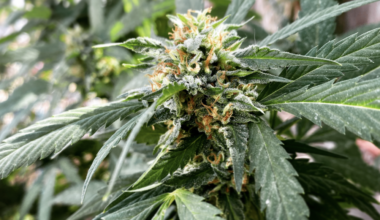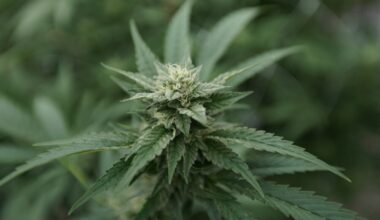Last week, the board proposing rules for Oregon’s nascent psilocybin industry held a second-to-last meeting before making final recommendations to state regulators. The meeting was contentious, and for the first time in its fourteen-month history, the Oregon Psilocybin Advisory Board started with a closed-door executive session.
For one hour, board members and Oregon Health Authority officials met privately with attorneys from the state’s Department of Justice (DOJ). Journalists were permitted to attend if they vowed not to report what they saw, but the public was excluded. The topic was a proposed ruleset called “Privileges and Duties of Entheogenic Practitioners.”
An Oregon attorney named Jon Dennis drafted the proposal, which he presented to the board’s Health Equity and Licensing Subcommittees this spring. Each committee approved the proposal before sending it for consideration by the full board.
(Disclosure: The author of this article served on the Oregon Psilocybin Advisory Board for one year and chaired its Licensing Subcommittee before resigning to move out of state.)
Dennis told Marijuana Moment he drafted the proposal for non-profit communities, including churches and spiritual groups, who hope to become licensed psilocybin businesses. Specifically, it calls for rules tailored to communities that utilize psilocybin, which have historically been spiritual or religious. In public comment sessions throughout the past year, members of the public expressed concerns that corporate interests have dominated the rule-making process to the exclusion of these communities.
Oregon’s psilocybin industry originated during the 2020 election, when state voters passed ballot Measure 109, also known as the Oregon Psilocybin Services Act. The initiative required Gov. Kate Brown (D) to assemble the advisory board and triggered a two-year development period in which members propose rules to the health authority. But while the health authority has until December 31 to publish final rules, the board’s recommendations are due on June 30, and only one meeting remains.
Multiple sources told Marijuana Moment they were surprised by last Wednesday’s closed-door session. “The board has never done this,” said Dennis in a phone interview. “The board had only six hours left to discuss its recommendations, and they decided to spend an hour of that time hidden from public view. When the board emerges from that meeting and summarily rejects the proposal without substantive discussion, it challenges public trust in the rule-making process.”
According to André Ourso, a state health official and non-voting member of the board, the closed-door session allowed members to receive confidential legal advice from DOJ attorneys regarding Dennis’s proposal. However, Ourso acknowledges that the board has previously sought DOJ guidance on various matters, and in those cases, attorneys conveyed the information publicly.
In this case, DOJ guidance came moments before the board discussed and voted on Dennis’s proposal, which appears to have garnered significant public support. Over 500 people signed a petition drafted by the Entheogenic Practitioner’s Council of Oregon, which urged the board and health authority to adopt the proposal. Entrepreneur and philanthropist David Bronner drafted a public letter of support.
At an April hearing called by the health authority, members of the public urged the agency to adopt the proposal. Some felt the agency had over-medicalized the psilocybin rules, turning what was intended to be an open and inclusive program into a form of psychotherapy.
Though Measure 109 ostensibly created a non-medical system, most board members have healthcare backgrounds. The fifteen-member body includes five physicians, two nurses, an epidemiologist, an addiction medicine specialist and a licensed psychologist.
Some have criticized the board and health authority for excluding Indigenous and religious perspectives in the rule-making process. When the board’s Research Subcommittee produced a review of evidence regarding psilocybin use, it pulled data almost exclusively from clinical trials despite Measure 109’s mandate to consider other sources.
At the April hearing, Peter Addy, a licensed professional counselor from Portland, told regulators, “I fully endorse Jon Dennis’s entheogenic practitioner’s framework…and I would be very disappointed if it’s just this ‘therapy-light’ version [of the rules] that you currently have.”
One anonymous commenter expressed concern that the rules released so far favor medical professionals. “As a founder of a sacred mushroom church, I’ve been following this for several months… I found it extremely problematic that the religious organizations are being treated the same as therapeutic organizations,” said the caller. “It’s kind of offensive to me that we are subject to medical protocols and regulations when the medical establishment got the mushrooms from the spiritual practitioners.”
Measure 109 requires the facilitators who will administer psilocybin in Oregon to hold only a high school diploma. However, emerging training programs are often geared toward healthcare professionals, and some exclude those without medical backgrounds.
“It’s very offensive that in order to use what we have already been using, I have to go to somebody, pay ten to twenty thousand dollars [for training], and get permission,” said Elan Hagens, a member of the board’s Health Equity Subcommittee, at the April hearing.
According to Hagens, “It’s been very hard for me to serve on these boards, and even these types of meetings because…we’re hearing from a lot of doctors and a lot of lawyers. And to sit in these meetings, it’s like a whole different type of language, and this language doesn’t transfer well to our community. And the reason we’re speaking these different languages is to separate and say, ‘I’m the one who is doing this,’ and they are down there doing that…and I want us to think about that.”
The morning before Wednesday’s closed-door meeting, Rebeca Rocha, a Brazilian-born psychotherapist and member of the Health Equity Subcommittee, sent a letter to the health authority and the board’s leadership. “I have some concerns regarding racial justice and equity of Oregon Psilocybin Services,” she wrote. “I was excited to learn about Jon Dennis’s entheogenic proposal which can address some of my concerns relating to racial justice, equity and accessibility.”
Rocha says candidates for board membership were asked about their understanding of racial issues and how to promote diversity and racial equity. However, “racial equity was not represented in the selection” of members. “The board does not include an individual from Mexico or Central America,” regions whose people contributed to “what we know today about psilocybin.”
Ourso and Jeff Rhoades, a policy assistant to Gov. Brown, interviewed prospective board members. Two out of three questions on the membership application asked candidates to describe their experience and ideas for promoting racial equity. Marijuana Moment asked Ourso if the governor’s office received applications from candidates who openly identified as Indigenous or religious. “I mean, I don’t recall,” said Ourso. “That was over a year ago, and [we received over] two hundred or so applications.”
According to Measure 109, “there’s supposed to be a person from one of the nine federally recognized tribes,” Ourso explained. And the agency has gone through a lot of effort to identify an individual that would be willing to take that position with some hope that that would be filled very soon. And we’ve identified some candidates in the past, and it just didn’t happen.”
It seems unlikely that the board will find an Indigenous member prior to making its final recommendations next month. In a phone interview, Hagens told Marijuana Moment that the board should have involved the voices of affected communities from the start, “not just scholarly communities.”
Immediately after last Wednesday’s meeting, the health authority published a legal memo that contains four questions it posed to DOJ attorneys regarding Dennis’s proposal. The first asks whether the health authority can exempt psilocybin practitioners from licensure under Measure 109. A second asks whether the authority can exclude practitioners from all psilocybin rules.
According to Dennis, these questions have little apparent connection to his proposal. Instead of exempting practitioners from licensure or all administrative rules, it asks the health authority to create a parallel set of rules, which largely overlap with existing rules, but are tailored to non-profit communities such as religious and spiritual groups. If the framework was adopted, community practitioners would still be licensed, and like other practitioners, they would be subject to rules created by the health authority.
A third question in the DOJ memo asks whether the health authority can adopt less restrictive standards for religious practitioners. According to Dennis, this question appears to “reflect a misunderstanding of the proposal,” which is really geared toward non-profit communities.
Ourso declined to comment on the content of the DOJ memo. But several sources told Marijuana Moment they were baffled by how poorly it represents the proposal.
Dennis says the board’s refusal to review and understand the proposal reflects either laziness or a bad faith refusal to address the needs of minority communities. “They owe the public a duty to understand and meaningful discuss the issues. By refusing to do that, they’ve breached the public’s trust and their duty to advise. Studies show that when presented with evidence and information that challenges one’s beliefs, a common reaction is to become more convinced that one’s beliefs are correct instead of being open to new information. That appears to be what happened here.”
Dennis recounted several attempts to educate the board and health authority on the proposal’s purpose and content. For instance, representatives of the Religious Use Committee of the Psychedelic Bar Association, an organization for attorneys and legal professionals, requested a meeting with the agency to discuss the proposed rules.
(Disclosure: The author of this article is member of the Psychedelic Bar Association.)
The Entheogenic Practitioners Council of Oregon, founded and chaired by Dennis, also requested a meeting.
Emails provided by Dennis show that the health authority rejected both requests. “We just need to let the process run,” said Jesse Sweet, a health authority policy analyst, in emails to Dennis declining to meet. Meanwhile, the health authority reportedly meets regularly with at least one outside organization.
Health authority spokesman Jonathan Modie told Willamette Week the agency meets monthly with a political group called the Healing Advocacy Fund to discuss rulemaking and other aspects of Measure 109’s implementation. Executive Director Sam Chapman added that the meetings occur behind closed doors instead of during public meetings because the board’s time is limited.
In phone and text conversations with Marijuana Moment, Chapman declined to comment on these meetings or Dennis’s proposal. The health authority’s Jesse Sweet also declined to comment.
At the board meeting last Wednesday, most members ultimately voted against the proposal following a brief discussion. They offered few reasons for rejecting it, but chair Dr. Atheir Abbas described the proposal as untenable in its current form.
“The issue with this framework is that it is counter to equity, said Dr. Atheir Abbas. “It is unfair to people who are not entheogenic practitioners, and so we need to develop a framework that is really comprehensively fair.” Abbas did not respond to Marijuana Moment’s request for clarification.
“I don’t want us to risk throwing out the baby with the bathwater,” said Dr. Rachel Knox, who chairs the Health Equity Subcommittee, which approved Dennis’s proposal. “There is nothing that says we have to recommend this framework in its totality. There are several components that are rich and that are tenable and that might make sense for a non-profit organization or community-based organization or organizations that identify with Indigenous cultural practices.”
Some board members questioned Dennis’s motives. “I would like to know the origins of this document and where it came from,” said Dr. Todd Korthuis, who declined Marijuana Moment’s request for further comment. “I’ve received I think five emails from the lawyer promoting this, lobbying me…trying to inform me on this. I would just love to know where the funding is coming from and who’s paying the bills for this effort.” Two board members responded that Dennis had acted on his own accord without any financial support, which Dennis also later told Marijuana Moment was the case.
Korthuis added, “I’m not honestly sure what it [the proposal] adds to the hard work we’ve been doing for a year… This feels like something tacked on at the end.” Knox responded that the proposal was put in front of the board’s subcommittees at the top of the year and had been under consideration for months.
“On many occasions, I have asked our board to review four subcommittee meetings, to go back and either watch or review the minutes of those meetings …where subcommittees really scrutinized the content and context of this framework,” said Knox. “So, I’m a little bit surprised that you’re uninformed on this matter, and I think that’s unfortunate.”
After rejecting the proposal at the Wednesday meeting, the board spent over an hour reviewing an unrelated set of licensing recommendations. “The difference between that discussion and the previous discussion about the proposal was striking,” said Dennis. “Board members thoughtfully engaged with the licensing recommendations while the community proposal had been summarily dismissed. From the outside, it appeared like they were just raising technical objections and hiding behind them as pretext to avoid a thoughtful discussion.”
Toward the end of the meeting, Knox urged the board to revisit the proposal next month and sincerely evaluate its elements instead of glossing over the details. “The reason it’s important for this to happen by the June deadline is that’s the deadline we have been given to have all of our recommendations in,” said Knox.
FINALE: After bitter disagreements re: the Oregon Psilocybin Advisory Board’s failure to pass a vote to recommend the implementation of Jon Dennis’ entheogenic service center proposals, Jon Dennis ended the meeting with a bold statement. His statement was cut short. Video below. pic.twitter.com/LyOSAyC58r
— Sasha Sisko 🏳️🌈 (They/Them) (@SashaSisko) May 25, 2022
Before voting on the matter, Abbas urged all board members to oppose further discussion. “We can do a vote, but I would advocate for folks voting no.” Five members subsequently voted in favor of further discussion, but six members voted against it.
In a perhaps fitting end to a contentious meeting, Jon Dennis offered concluding remarks during a brief public comment period. Before he could make his final point, the health authority cut him off and abruptly ended the meeting.
Read the letter from Rocha below:
FBI Marijuana Arrest Data May Be Critically Flawed, And DOJ Is Being Asked To Investigate
Image courtesy of Kristie Gianopulos.
Medical Disclaimer:
The information provided in these blog posts is intended for general informational and educational purposes only. It is not a substitute for professional medical advice, diagnosis, or treatment. Always seek the advice of your physician or other qualified healthcare provider with any questions you may have regarding a medical condition. The use of any information provided in these blog posts is solely at your own risk. The authors and the website do not recommend or endorse any specific products, treatments, or procedures mentioned. Reliance on any information in these blog posts is solely at your own discretion.







